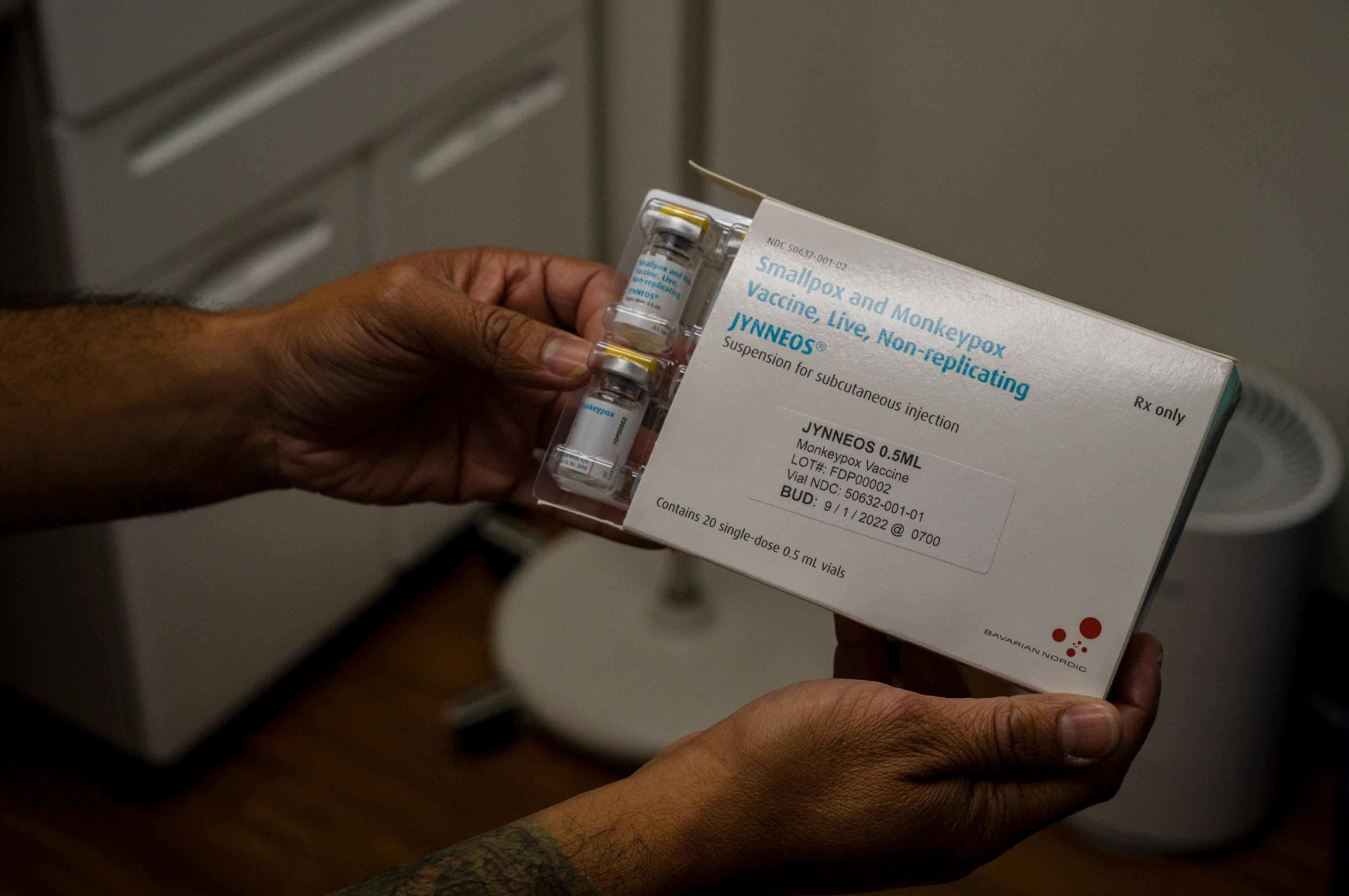Clear evidence of the city’s monkeypox crisis could be seen in the long line of people snaking around Zuckerberg San Francisco General Hospital on Wednesday morning.
Those locals were hoping to receive a dose of vaccine in increasingly short supply. The clinic, which was supposed to be open between 8 a.m. and noon, quickly exhausted its inventory and turned hundreds of drop-in patients away.
As of Tuesday, diagnosed and probable cases in the city had reached 141, according to the Department of Public Health, up from 86 last Thursday. In response, Mayor London Breed and other city officials have implored the federal government to send more of the vaccine.
This week, San Francisco received a shipment of 4,163 shots, but Department of Public Health officials were not able to say how much of that number remains. In response to the growing outbreak, Supervisor Rafael Mandelman plans to hold a hearing on Thursday digging into the city’s monkeypox response.
Recently, New York’s health commissioner classified the outbreak as a pandemic, but DPH says it isn’t ready yet to make that announcement. Still, in order to protect yourself and your community, here are six things to know about the disease.
Who is at high risk and eligible for a vaccine?
San Franciscans who can receive a dose of vaccine include: men who have sex with men (opens in new tab) and trans people who have sex with men; both cohorts must have had multiple sexual partners in the past two weeks to be deemed eligible. Also eligible are those who have been identified as a close contact of someone with monkeypox, or received a notification from a venue or event about potential exposure. Recently, sex workers of any gender or sexual orientation were also added to the high risk category. Lab workers and clinicians who come in contact with virus samples or infected patients are also eligible to get vaccinated. In the case of serious infection, patients are treated with TPOXX, an antiviral that is also in extremely limited supply.
Any tips on securing a dose?

Andy Mullan, a legislative aide for Supervisor Catherine Stefani, showed up at San Francisco General a little before 7 a.m. and was notified about a hour later that he would not be able to receive a shot. Hospital staff recommended that those who were turned away call and try to make an appointment.
Mullan called San Francisco City Clinic at (628) 217-6600 and was able to secure an appointment for a vaccine on Thursday morning. Health officials continue to recommend making an appointment to ensure a dose and avoid long lines. Here’s a list of sites (opens in new tab) offering vaccines by appointment.
What should I know about testing?
Commercial labs have recently ramped up their monkeypox testing capacity in partnership with the Centers for Disease Control. However, testing relies on swabbing spots and lesions caused by the disease, which can take a while to appear because of the virus’ five to 21 day incubation period. In some cases, infected patients never get a rash and may experience flu-like symptoms like fever, swollen glands or muscle aches, which makes widespread and accurate testing difficult.
How does the virus spread?
Monkeypox predominantly spreads via prolonged skin-to-skin contact, including sexual activity, kissing, breathing at close range and sharing bedding or clothing. Those with multiple sexual partners or with close physical contact with many people are at higher risk of infection. It’s unclear at this point whether the disease is present in semen, vaginal fluids or other body fluids and whether contraceptives like condoms reduce the risk of spreading or getting the disease. Researchers are also investigating if the virus can be spread when a person has no symptoms.

Who is getting infected in San Francisco?
According to a presentation (opens in new tab) by SF Health Officer Dr. Susan Philip at a Tuesday meeting of the Health Commission, 97.7% of the city’s monkeypox cases have impacted cisgender men, with the remainder of cases seen in trans men. Currently, 88.4% of cases have appeared in men who say they are gay, with 1.2% reporting they are straight and 1.2% saying they are bisexual. White San Franciscans currently make up 47.7% of cases, with Latinos standing as the second-largest demographic with 29.1% of cases.
What is the federal government doing to get more doses?
San Francisco relies on the federal government’s supply of monkeypox vaccine to distribute to residents and demand is rapidly outstripping supply. This month the federal Department of Health and Human Services ordered another (opens in new tab) 5 million doses of the monkeypox vaccine. All told, the government said it expects 1.9 million doses to be available in 2022 and an additional 2.2 million doses in the first half of 2023. So far, the federal government has distributed 191,000 doses of the vaccine with 26,990 going to California.
